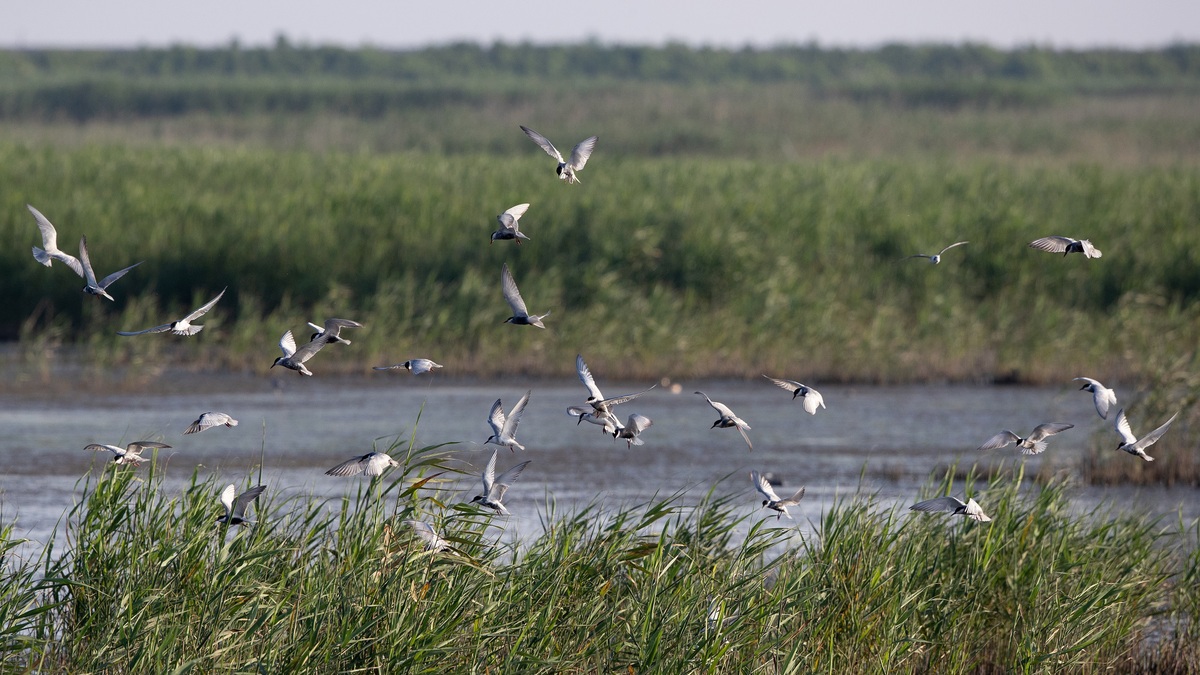9 Chinese cities awarded Wetland City Accreditation


Nine more Chinese cities have been awarded Wetland City Accreditation, ranking China on top worldwide for the accreditation, and marking significant progress for the country in wetlands protection, which is vital for the ecology.
The nine cities were among 31 places worldwide included on the wetland city list on Thursday during the 15th Meeting of the Conference of the Contracting Parties to the Ramsar Convention on Wetlands, or COP15, being held in Victoria Falls, Zimbabwe. Following the announcement, 22 locations in China have so far received Wetland City Accreditation, among 74 globally.
The nine cities and districts, including Shanghai municipality's Chongming district, Dali in Yunnan province, Fuzhou in Fujian province, Hangzhou in Zhejiang province and Suzhou in Jiangsu province, have each demonstrated unique approaches and progress in wetland protection alongside achieving coexistence of city development and nature to acquire the accreditation.
The Ramsar Convention, signed in Ramsar, Iran, in 1971, is the world's only international treaty focused on wetlands.
Musonda Mumba, secretary-general of the Convention on Wetlands, hailed China's achievements in conserving wetlands and ecology over the past decades, particularly since China joined the convention in 1992.
"China has been a leader, particularly in the segment that is related to Wetland City Accreditation. Most of the wetland cities that are accredited in the world are in China," Mumba said, highlighting the important role of urban wetlands, as more than half of the world's population lives in cities, adding that there's been a demonstration of the intersection between ecology and development coexisting in China.
She said it is "extremely impressive" to see that China has been committed to protecting wetlands at the "highest political level", adding that the conservation efforts and experiences from China, such as making use of data and improving legislation in wetland protection, have provided valuable lessons to the whole world.
While delivering a speech at the opening ceremony of the conference on Thursday, Yan Zhen, deputy head of the National Forestry and Grassland Administration, said that China has intensified protection and management of wetlands over the past few years, including enacting the Wetlands Protection Law, protecting and restoring 17,000 hectares of mangrove forests as well as four international bird migration routes that cross Chinese territory.
China is willing to intensify international cooperation in global wetlands protection and make new contributions to building a world where humans and nature thrive together, Yan said.
On Thursday, Zimbabwe assumed the presidency of the Conference of the Contracting Parties to the Ramsar Convention on Wetlands, taking it over from China. Around 3,000 delegates from 172 countries are taking part in the meeting, with the Victoria Falls Declaration expected to be adopted to call for global solidarity and increased investment for wetlands protection and management.
At the opening of the meeting, Zimbabwean President Emmerson Mnangagwa highlighted the urgency to protect wetlands and called for intensified global efforts for the preservation of the essential ecosystems.
"With unwavering political will, concrete commitments and shared determination, we must protect, revive and wisely use our wetlands for the benefit of both present and future generations," he said.
The COP15, themed "Protecting Wetlands for Our Common Future", opened at a time when global warming is causing unprecedented changes to the planet, with the existence of wetlands, essential for climate resilience and biodiversity, threatened. The COP15 is being held from July 23 to 31.
According to a report recently released by the convention, global wetland acreage has declined by 22 percent since 1970, and the losses are continuing at an average rate of 0.52 percent every year. Globally, one in four remaining wetlands is facing degradation.
Grethel Aguilar, director-general of the International Union for Conservation of Nature, said at the conference: "Wetlands are no longer invisible on global agendas. They are essential to addressing today's most urgent challenges — climate change, biodiversity loss, water insecurity and disaster risk."
"And more than that, they are our life support systems. By protecting the wetlands, we ensure the continuation of human development, regional peace and planetary stability," she added.
- Beijing's Summer Palace rolls out multi-language translation machine
- Wildlife rescuer takes care of vulnerable animals like a parent
- Zhang Youxia meets with chief of Pakistani army
- Model UN conference gathers global students in Wuxi
- Chikungunya fever cases reported in Guangzhou
- Qingdao to host 10th China International Copyright Expo




































